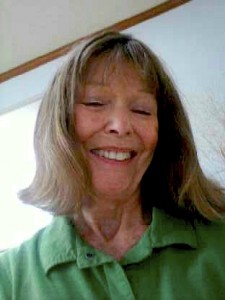 Meet CTS Contributor Linda Ardison!
Meet CTS Contributor Linda Ardison!
Location: Virginia Beach, VA
Education: BA in English
The Writer
How long have you been writing?
Since a visiting Arkansas poet in my high school, who had the improbable name of Edsel Ford, chose a poem I’d hastily written and pronounced it good. The next year, in college, I took a creative writing course and was almost immediately transferred to work one-on-one with a professor who remained a life-long friend and mentor. When I won an Atlantic Monthly scholarship to Bread Loaf, he also attended and from that point on we corresponded until his death in 2004. His own writing was published but never gained the acclaim it deserved. Though I’m quite a big girl now I still miss him, being able to ask him questions or glean from him the encouragement I needed, which he so freely gave.
What do you consider to be your greatest accomplishment as a writer?
The ability to connect with people, giving readers the opportunity to find their own unique experiences and emotions into how they react to my work. That process is often subconscious but allows others to bring up feelings by reading my words, my metaphors and sounds and invoke aspects of events or feelings in their own lives to those elements and themes.
What is your ultimate goal as a writer?
My ultimate goal has always been to express the inexpressible, as poetry is able to do, to put into form thoughts or questions or imaginings that have some relevance to the lives of those who read it. Again, the idea of connection.
What is your greatest challenge as a writer?
Oh, I dislike saying this but I abhor the submission process! Writing is the fun part; the rest is, for me, pure torture. Of course, I fully understand the necessity, but I find it somehow demeaning to have to “pitch” one’s writing, as if it’s a product one is selling door-to-door. That notion just doesn’t sit right with me, perhaps because it diminishes the artistic endeavor of creating good poetry. Only Emily Dickinson escaped it and acquired readers anyway, but only years later.
The Work
Tell us about your work in Crack the Spine.
“Ode to Sheets that Blow in the Wind” brings to some a reminder of a time when laundry hung on clotheslines, before the habit of stuffing it into a clothes dryer and adding softening sheets as a scent. Hanging laundry outdoors to absorb the irreplaceable smell of sun and wind still occurs in rural settings, especially around where I live in Virginia. A chore, yes, but one that nevertheless brings pleasures affecting most of our human senses.
Is there a main theme or message in this piece?
The message explores the delight of a child running through the drying bed linens hung outdoors, the experience of the wet sheets against a cheek, the early-morning feel of bare feet on grass still damp with dew, the sight of a breeze lifting the linens like sails, the amazing fresh scent of those sheets when later brought indoors to cover one’s bed on a summer night.
What inspired this work?
My own childhood recollections of my own mother’s clothesline, strung from wooden T-shaped posts at each end, wet laundry hung there before the growing summer heat. It spoke to me of care and love and outdoor beauty so many children today miss entirely. Perhaps simply of a mother who was always at home, making it safe to be a child free to run and play as children did before texting.
How long did it take you to complete this piece?
Not long. I wrote the poem for a meeting of the Albright Poets, the first poetry group I found after moving to Virginia, where it was read aloud and critiqued by some excellent writers I felt I could trust entirely with their comments.
Tell us about another project you have published or are currently working on.
I continue to assemble a book of poems about my heritage, with all the universal traits—woes, joys, deaths, unmet desires—that define who we are, and often why we are as well. When one of the poems, “Calling My People Home,” won a first-place award at one of the annual writers’ conferences held at a university nearby, the comments of the judge, a North Carolina Poet Laureate, helped me recognize the importance of documenting such a history in poetry.
What inspired this work?
The title embodies what I want to accomplish: to draw together again the scattered pieces of past and present in a place called “Home” that is far from idealized but, instead, embodies a town where even the local country club is called “Hardscrabble.” This is important to me because my maternal grandmother was illiterate, yet I received the gift of being able to write words that drew readers to my work, words she would never see from her small farmhouse in Arkansas.
When can we find this work?
I want to find a publisher who will appreciate the value of both the writing and the people who populate the pages of such a book.
The Methods
Where do you write?
I have a small area with a desk facing a window where I can see the ocean in the distance and hear the roar of waves. Such a peaceful place to be able to work, yet I find it often impossible to escape the interruptions that break one’s train of thought so that lines are too often lost by the time I can return to them, with no idea what I intended to say. My great pleasure is having long stretches of time to allow the writing to take form and precedence.
What time of day or night makes you most productive as a writer?
I am definitely a night writer. The stillness and the dark enable me to be quiet and listen inwardly. I respect the words that come to me in such a way; I build on what I hear in my head and follow the thoughts till a clear direction pr lines of poetry/prose emerge. Some of my best ideas come to me in that space just before sleep, so if I can manage to get up and write them down they’ll usually amount to something. Alas, I usually succumb to sleep!
What is your usual starting point for a piece?
If I am writing poetry, reading others’ poetry often brings to me a starting point, an idea, a tone, even a word that touches the quite mysterious process of creating. Whether writing poetry or short fiction I usually begin in the middle. The work proceeds from there and I go back to fill in the beginning according to what has emerged. I follow no hard and fast rules.
How do you react to editorial rejections of your work?
I have been writing long enough to know we can’t please everyone so write what you alone need to say and if you’ve said it well rely on someone, somewhere to see that and respon
The Madness
What is your favorite book?
Possession, by A.S. Byatt. She’s an incredible English writer whose character development, plot, and luscious descriptive qualities are beyond measure. Maybe I favor her because I majored in English, not American literature. As for poetry, I will never stop admiring the work of Sylvia Plath, whose own journey ended far too soon.
What is the greatest occupational hazard for a writer?
By all means, distraction. When I am utterly lost in whatever I’m working on, family members can’t seem to grasp what asking me a question does to me!
What makes you cry?
The human residue caused by poverty and unloved children particularly hurt my heart.
What’s in that cup on your desk?
Coffee, always. I drink gallons of it.
Chocolate or Vanilla?
Prefer pecan praline!
Beach or Mountains?
Barefoot in sand.
Cats or Dogs?
Devoted dogs rule.
